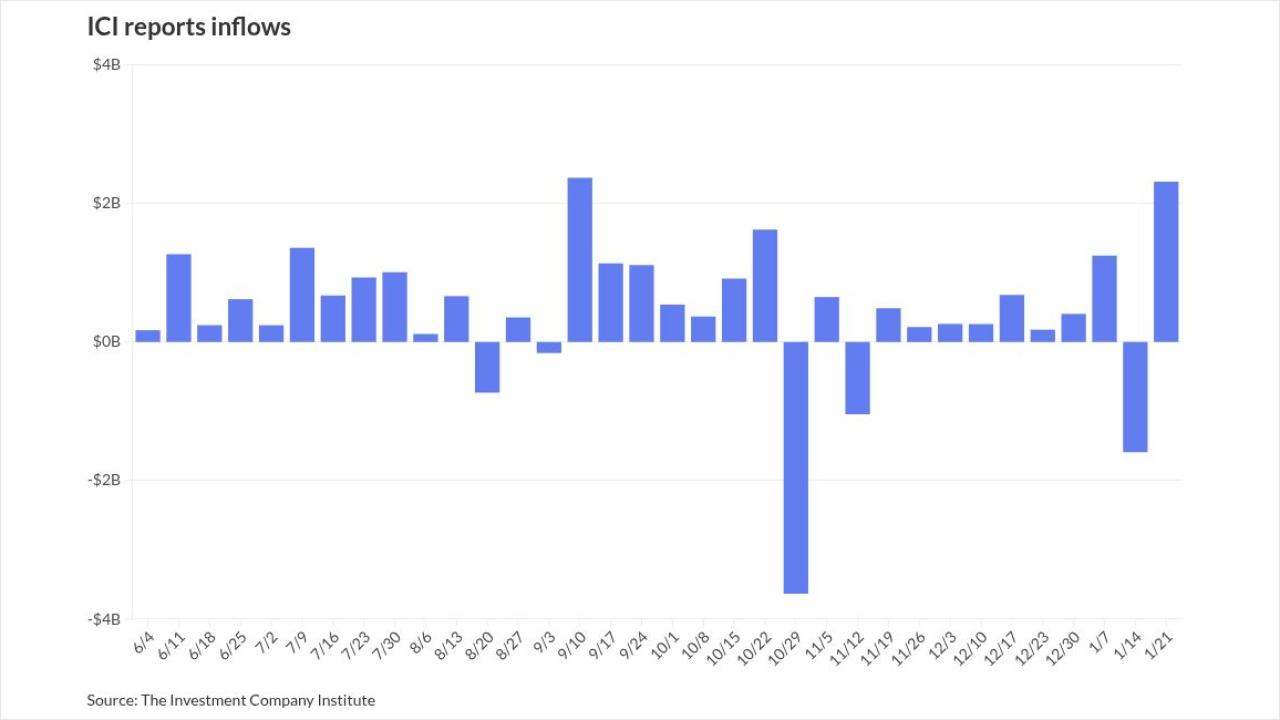CHICAGO — A failed film studio project touted by a Hollywood producer has left a Detroit suburb struggling to cover payments on $31 million of bonds that have sparked an informal investigation by the Securities and Exchange Commission.
Allen Park floated limited-tax general obligation bonds in 2009 and 2010 to finance a film studio and new government complex.
But the producer behind the film studio abandoned it just months after the last bond sale.
The project has since failed to generate enough revenue from lease payments to cover debt service, forcing the city to dip into its weakening general fund to make good on the bonds.
Standard & Poor’s has hit Allen Park with two downgrades since last year, stripping it of an investment-grade rating. The actions were due in part to analysts’ concerns over the speculative nature of the project, which is straining the city’s liquidity as it struggles to cover the bond payments.
Investors say the issue highlights the importance of due diligence and the perils of attaching a GO pledge to risky projects.
Allen Park’s decision to attach a GO pledge helped lower interest rates and make the project viable as it was trying to take advantage of former Michigan Gov. Jennifer Granholm’s effort to create a burgeoning film and television production industry in the state.
Allen Park is located in southeast Wayne County, about 15 miles from Detroit. It has long enjoyed a stable fiscal position, with high income levels and low unemployment rates, anchored by the presence of Ford Motor Co., still the city’s largest employer and taxpayer.
Like other municipalities across the state, Allen Park’s fiscal position in recent years has suffered from falling property tax revenue and cuts in state revenue aid.
It is now facing a budget deficit severe enough to prompt city officials in February to threaten laying off the entire fire department.
Its fiscal position has been further weakened since last year by the need to dip into its general fund to help meet $2.6 million in debt service payments for a 104-acre development that was to include a $146 million film production studio and new government buildings.
The city issued a total of $31 million of limited-tax GOs in 2009 and 2010 to finance the Southfield project, including the film studio.
The bonds featured a first budget obligation pledge from the general fund, though officials said they expected that debt service payments would come from lease revenue generated by the project.
The sprawling project was sparked by an agreement with Hollywood producer and Detroit native Jimmy Lifton, who was to headquarter his Unity Studios in the space.
Bond documents touted the project as a full-service movie, television, and new media production studio that would employ “thousands” of skilled, union workers.
But just months after the final bonds were sold, Lifton abandoned the project. The city since has managed to lease about 70% of the space, but lease revenue continues to fall short of the amount needed to cover debt service payments.
In March, the SEC sent Allen Park a letter announcing an informal inquiry into disclosure issues involving the bond transaction, including the property appraisal and a $2 million loan Lifton promised the city.
For one investor in Michigan debt, the troubled transaction highlights the importance of due diligence and how the municipal market has changed over the last few years.
“Ten years ago, most people in munis didn’t even care what the project was or what municipality it was if the bonds had insurance,” said Brad Reynolds, chief investment officer for Troy, Mich.-based investment firm LJPR LLC, which buys local Michigan debt.
“There was a lot less due diligence done by investors, and as we’ve come to find out, that wasn’t the way to look at it,” he said.
“But the other side of that is, in the struggle to get financing, it’s possible that certain municipalities like Allen Park have done things that they would not have done in the muni market of five, 10 years ago,” he said, referring to the city’s decision to attach its GO pledge to the bonds.
An SEC spokesman would not confirm an investigation. But sources who have read the letter say it centers on the underlying details of the bond sales, including appraisal of property purchased by the city and a failed promise by Lifton to loan the city $2 million to help bring down its $1.9 million deficit.
“The city’s point is, OK, the leases are not turning out, but the bondholders didn’t get a direct pledge of the leases, they got a first budget obligation out of the general fund,” a source familiar with the original bond transactions said.
“The question becomes, should some of [the underlying transactions] been disclosed?” he said. “Ultimately that’s interesting, but it’s not the security placed to the bondholders.”
The next debt payment is due in May, and the city plans to make the payment with a mix of lease revenue and general fund contributions, said city administrator David Tamsen.
“As of right now, I’ve been told we have the ability to make the debt payments,” said Tamsen, who has held the position for less than a month.
He added that the city is negotiating with a “couple” of companies interested in leasing the space, and is considering legal ways to dip into its usually restricted downtown development authority fund to make the debt service payments.
The Southfield Lease Properties Fund had a deficit of $6.9 million as of the end of fiscal 2010, according to a city audit.
Allen Park recently approved a deficit elimination plan for the Southfield fund, which shows projected deficits through 2015, with projected revenue reaching $2.6 million in that year and expenses totaling $3.8 million. The city plans to offset the losses with contributions from its general fund or the downtown development fund of roughly $3 million annually.
Standard & Poor’s, which downgraded the city’s limited-tax GO rating to BB-plus with a stable outlook last month, warned that continued dips into the general fund to make payments could create a liquidity crisis.
“Given our opinion of the speculative aspects of the project, the city’s decreasing general fund balance creates additional risks for these bonds because, if the development is unable to produce the rental payments necessary to pay debt service, the city could face a liquidity crisis without sufficient funds to pay debt service on a timely basis,” wrote Standard & Poor’s analyst Sean Hughes in the March 8 downgrade report.
The Southfield film studio project was Allen Park’s effort to grab a piece of a film and television production sector that at the time was expected to bring new jobs and visibility to the state.
The program sparked similar bond-financed projects, like a $60 million bond sale by Oakland County in June 2010 to build a new film studio in the cash-strapped city of Pontiac.
By borrowing to finance the film studio, Allen Park was investing in what many in Michigan at the time thought would be a burgeoning film industry.
Granholm, a Democrat, crafted a film industry credit that was among the most generous in the country, featuring a 42% tax credit on all film and media-related expenditures and a 25% credit for companies that invest in new film and television studios and a 50% credit for on-the-job training expenses.
“There was a lot of euphoria with the film industry, which was seen as the savior in Michigan, and everyone was competing to get those dollars,” Reynolds said. “Similar to individual investors reaching for yield, some municipalities may have stretched in hopes of obtaining that revenue, and in order to get those bonds floated needed to put up their own faith and credit.”
Republican Gov. Rick Snyder, who took office in January, has proposed a fiscal 2012 budget that would largely abandon the film credit program.
Snyder’s move has sparked controversy across the state, with film credit supporters saying it could be a major revenue stream for the state, and critics saying the credits will cost more money than the industry brings in.
For Allen Park, the question is now largely moot.
“The film credits are gone,” said one top city official who asked to remain anonymous. “Say we had the $146 million project — where we would be now?”
In November 2009 the city sold two issues for the project, including $25.2 million of taxable LTGO bonds and $3 million of tax-exempt recovery zone facility bonds using private-activity bond volume allocated to the city by Wayne County under that federal stimulus program.
The city paid interest rates between 6.62% and 7.25% for the Series A bonds. A 2039 maturity of the taxable Series A bonds traded at a 9% yield last week, according to Municipal Securities Rulemaking Board data. Bonds with a 2029 maturity were trading at 9.2%.
For the recovery zone facility bonds, the city paid interest rates ranging from 5.1% to 6% for three series of term bonds maturing in 2019, 2029, and 2039. PNC Capital Markets was the underwriter. Miller, Canfield, Paddock and Stone PLC was bond counsel. Stauder Barch & Associates was financial adviser.
In 2010, the city issued an additional $2.75 million of tax-exempt LTGO bonds to pay for infrastructure improvements at the site. Not all the proceeds from that bond sale have been spent, a source close to the transaction said.
The deal sold competitively, with Assured Guaranty insurance.
The city paid rates from 3% to 5% for serial bonds that mature in 2012 through 2019. The issue also included three terms bonds that mature in 2025, 2030, and 2034. The city paid rates of 5.5%, 5.5%, and 5.75%, respectively.





